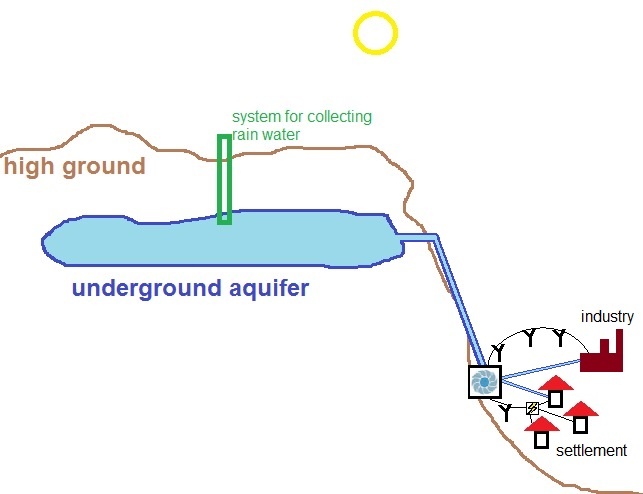
Uploaded on 2016-04-21 by JennyPeeva
Total energy consumed in Bulgaria in 2012 was 0.758 quadrillion Btu(EIA's International Energy Statistics), of which 0.176 was petroleum consumption, 0.111 natural gas use and 0.335 q. Btu from burning up coal, which makes coal the dominant fossil fuel, used in Bulgaria. Coal secures around half of the electricity in Bulgaria, leaving the rest to other sources, of which 35% comes from nuclear power (Bankwatch). **Where are the dominant fossil fuels mainly used for in your country?** On www.iea.org/sankey, we can see that in Bulgaria oil products (petrol) are mainly used in the transport (2.25 Mtoe), with Industry and Non-energy sector being second highest consumers- each utilizing 0.21 Mtoe. Natural gas is mainly used in the Industry (0.76 Mtoe). Coal, which is the primary energy source (5.54 Mtoe), is mostly used in thermal power plants for the production of electricity and heating for residential and other uses. Due to the application of aged technology, coal and nuclear-fueled electricity production is characterized by high level of power losses in the form of heat. **Creating a new policy in order to promote environmental friendly and sustainable energy sources and more energy efficient consumption in Bulgaria** When discussing possible policies, we need to first account for national specificities as well as the EU’s rules. For the purpose of promoting sustainable energy sources and more efficient energy consumption, the following actions are suggested: 1) For the purpose of promoting sustainable energy sources: - Hydropower will be supported, but manly in smaller scale for local needs. - Underground aquifer utilization will be promoted to reduce flooding, secure irrigation water and electricity in rural areas. ![Using underground aquifers on a higher plane to support lowlands with electricity and water and prevent from floods][1] - Nuclear energy will be supported institutionally. - Efforts towards the establishment of a decentralized, open energy market - Solar and wind capacities could be stimulated for isolated places with no regular grid access, but due to the geographical location and insolation (year round solar radiation), large-scale wind and solar farms would not be discussed. 2) For the purpose of promoting more efficient energy consumption: - Improving maintenance and construction of new, more energy efficient power plants (like combined cycle power plant or high pressure PP) - Efforts toward the establishment of a smarter grid and smart metering, allowing for personal end-user adjustment of energy usage profile. - Preservation and development of the centralized district heating- In appropriate areas, such as the capital, where there are low-lying underground hot waters, closed-loop heat pumps could be installed to support residential neighborhoods, thus providing heating without polluting the mineral water below. ![Closed-loop cycle for heating a house, using shallow hot underground waters][2] Sources: 1) Energy Strategy of the Republic of Bulgaria till 2020, http://www.mi.government.bg/files/useruploads/files/epsp/23_energy_strategy2020%D0%95ng_.pdf 2) EIA's Sankey diagram on Bulgaria's energy balance, http://www.iea.org/sankey/#?c=Bulgaria&s=Balance 3) The energy sector in Bulgaria, http://bankwatch.org/campaign/coal/bulgaria 4) Draft plan for river basin management in the Danube basin for the period 2016-2021, BG http://www.bd-dunav.org/uploads/content/files/upravlenie-na-vodite/PURB-2016-2021/Razdel-1/Razdel_1_Proekt.pdf 5) Hydrogeological description and evaluation of the operational resources of groundwater, BG http://old.bluelink.net/water/dunav/iskar/hidrol_opsanie.htm [1]: https://edxuploads.s3.amazonaws.com/14612437826391054.jpg [2]: https://edxuploads.s3.amazonaws.com/14612437142114836.jpg